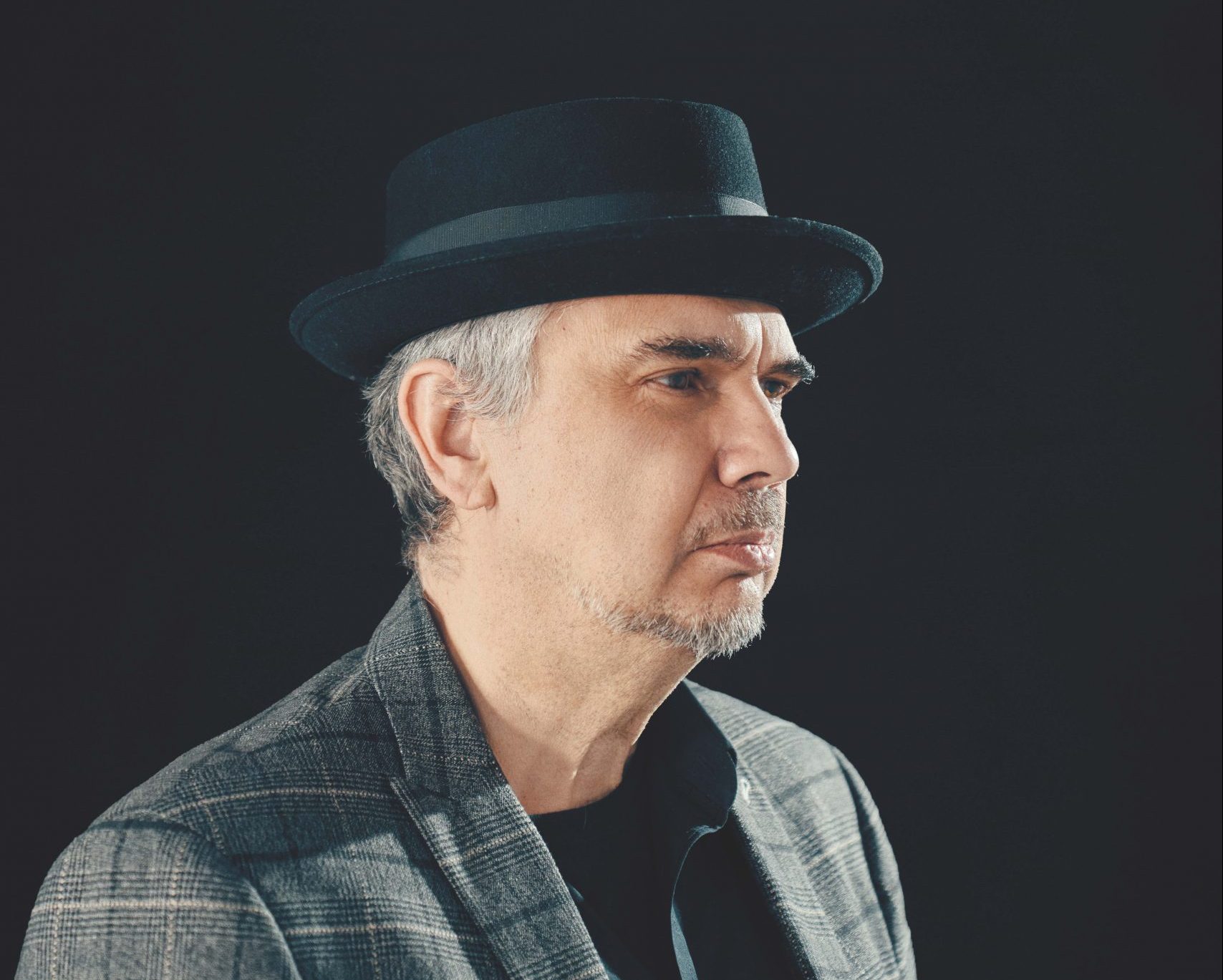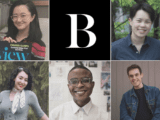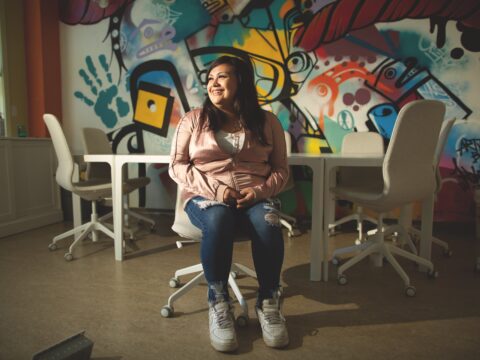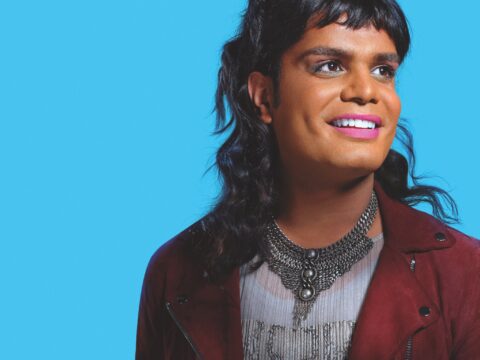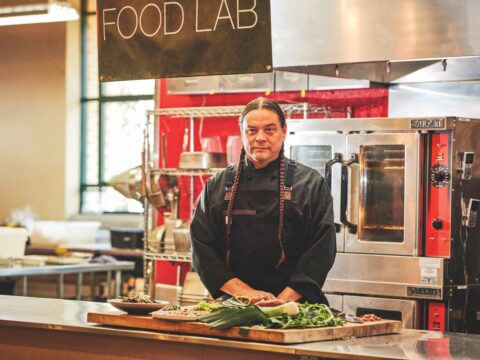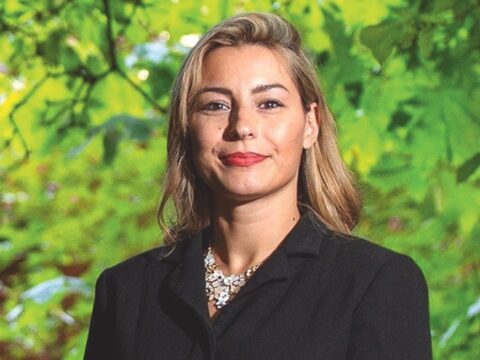Miguel De La Torre is a professor of social ethics and Latinx studies at the Iliff School of Theology in Denver and the author of dozens of books. His most recent, Decolonizing Christianity: Becoming Badass Believers, calls for a total rejection of the white supremacy and oppression that runs deep in Christianity. De La Torre spoke to Samir Eljagh Tapia about class, race and embracing the heart of Jesus’ Gospel.
Samir Eljagh Tapia: What inspired you to write this book now?
You may unsubscribe from any of our newsletters at any time.
Miguel De La Torre: It’s a follow-up to my earlier book, Burying White Privilege. One of the critiques I received was that I was effective at explaining the problem but failed to provide solutions.
SET: Its subtitle is very interesting. Can you paint us a picture of what a “badass believer” is?
MDLT: The Christianity that we have now is a Christianity that’s designed to domesticate people, so that the privileged in structures of power remain privileged. If you want to change this and instead embrace a Christianity that’s closer to the message of the Gospel, then that makes you a “badass” — like Jesus walking into the temple and turning the tables over.
SET: In your book, you write that one of the characteristics of a “badass believer” is being in solidarity with the oppressed. What can solidarity look like in everyday Christianity?
MDLT: Most people either live in a city or town, and there are parts of that city or town where disenfranchised people are. I’m not talking about going into those areas and simply doing charity work. I’m talking about truly being with marginalized people: listening to their stories and using your privilege to try to change the structure that is causing their oppression. You don’t have to go across the country to find solidarity.
SET: Not everyone recognizes their own privilege. When you talk about privilege, what are you referring to?
MDLT: Privilege is the thing that protects and saves me from the hardships that people who look different from me go through. For example, I occupy a male body. I am privileged over women because the existing social structures were designed to privilege my maleness. How do I use that privilege, then? By speaking out against the very structures that privilege me. Others may wrestle with privilege connected to race or heterosexuality or class.
SET: Some Christians may only connect oppression with poverty or lack of means. What you’re advocating instead is that we should all examine the privileges we have.
MDLT: I think it’s important to realize that while I lack the privilege of a white man, I’m still privileged as a heterosexual man. In some areas of life, we may be among the oppressed, and in other areas, we may be among the oppressors. It’s not an easy dichotomy.
SET: Would you say that being a Christian is being privileged?
MDLT: In the Western Hemisphere, absolutely. If I’m Jewish, anti-Semitism could put my life in danger. If I’m Muslim, Islamophobia could prevent me from living in many parts of the country. And of course, there’s a multitude of other religions that are seen as less important than Christianity. Christianity, especially the way it is practised in the United States and Canada, is a white Anglo-Saxon ideology — and not so much a religion.
I mean, just listen when people say things like, “Thank God for my riches,” “Thank God for my house” or “Thank God for my food.” It says to less privileged groups: “You have sinned, and therefore, God is punishing you by not giving you these things.”
To decolonize Christianity means to separate the message of a marginalized man who lived in Judea 2,000 years ago from the faith of European kings and rulers. The two are different.
SET: Everyday Christians might not know what it means to decolonize Christianity. Can you sum it up for them?
MDLT: Let me put it this way. If you are a Black Christian, you can thank slavery for that. If you are an Asian Christian, you can thank the age of exploration and colonizers going to Asian countries and taking over political systems. And if you are an Indigenous Christian, you can thank the genocide of your people. Many groups are Christians because of the horrors done in the name of Christianity.
The command to make all people Christians, when merged with the zeal to steal other people’s land and natural resources, created a Christianity that justifies greed and murder. To decolonize Christianity means to separate the message of a marginalized man who lived in Judea 2,000 years ago from the faith of European kings and rulers. The two are different.
SET: How does one begin to make this separation?
MDLT: We must move away from the spiritual ideology that justifies oppression. The very first step, then, has to be about decolonizing your own mind. Engage with marginalized communities and literature that moves away from the dominant worldview. I read books by African American writers, Asian American writers, queer writers and Indigenous writers. Their perspectives are helpful to me.
SET: If I’m absorbed in my own Christian worldview — to the point where I cannot see the difference between one and the other — what can I do?
MDLT: We must think of decolonization in two forms: decolonizing the minds of the marginalized and decolonizing the minds of the privileged. For those who are marginalized, the question becomes: how do we create a Christianity rooted in an African worldview or an Asian worldview or a Latinx worldview? We must use our own cultural symbols to understand Christianity. As a result, it becomes obvious that Jesus can no longer be white. Pictures of white Jesus only teach us to worship white men. It’s pure, minimal cosmetics.
Now, for those who are privileged, decolonizing will be more difficult because you’re following a faith tradition that cannot be reformed. For the privileged, salvation is learning to worship the God of the oppressed: the Black Jesus, the queer Jesus and so forth. That becomes the way to solidarity — so they can reject this white Christianity that they’re a part of.
SET: What has this process been like for you so far?
MDLT: I haven’t been able to complete it yet. I mean, the fact that my books are written in English shows how colonized I am, even in my education. My worldview is also still very Eurocentric, and that only reinforces my colonized mind.
More on Broadview:
- Tomson Highway on the magic of Cree and power of myths
- John Pavlovitz wants churches to be more ‘brutally honest’
- These three Black women are breaking barriers in ministry
SET: What made you decide to go into a life of academia?
MDLT: Originally, I planned to be a pastor, but as I finished seminary school I realized that my views would make it difficult to get a post. In fact, I actually pastored at a church that later asked me to leave after eight months. So I ended up doing what every unemployed grad student does: I continued my education and got a PhD.
SET: You’re an ethicist and you’ve also studied theology. When did you become interested in the political side of things?
MDLT: To that I would say, Jesus was political — so political, in fact, that when he was crucified, they put a sign over his head that read, “King of the Jews.” He was a political threat to the Roman Empire, and his very pronouncements had political ramifications. If I’m going to truly follow up on his call, then my work has to be political.
Another reason I think I’m political is because, as we know, one person’s biases and prejudices are unimportant. That’s an individual feeling. But when the social structures themselves are racist, then the only way to bring out justice is to dismantle them. I can’t be faithful to the Gospel’s message of liberation if I am not working toward the liberation of individuals as well.
SET: There was a line from your book that really struck me: “Eurocentric theology is embedded between white supremacy, and it is incongruent with the message of liberation presented through the gospel.”
MDLT: I’m talking about the message of the Gospel of Jesus Christ. That’s a message of liberation. That’s a message of solidarity with “the least of these.” White supremacy has never been about feeding the hungry and thirsty.
***
This interview has been condensed and edited for length and clarity. It first appeared in Broadview’s October/November 2022 issue with the title “Christianity, revisited.”

